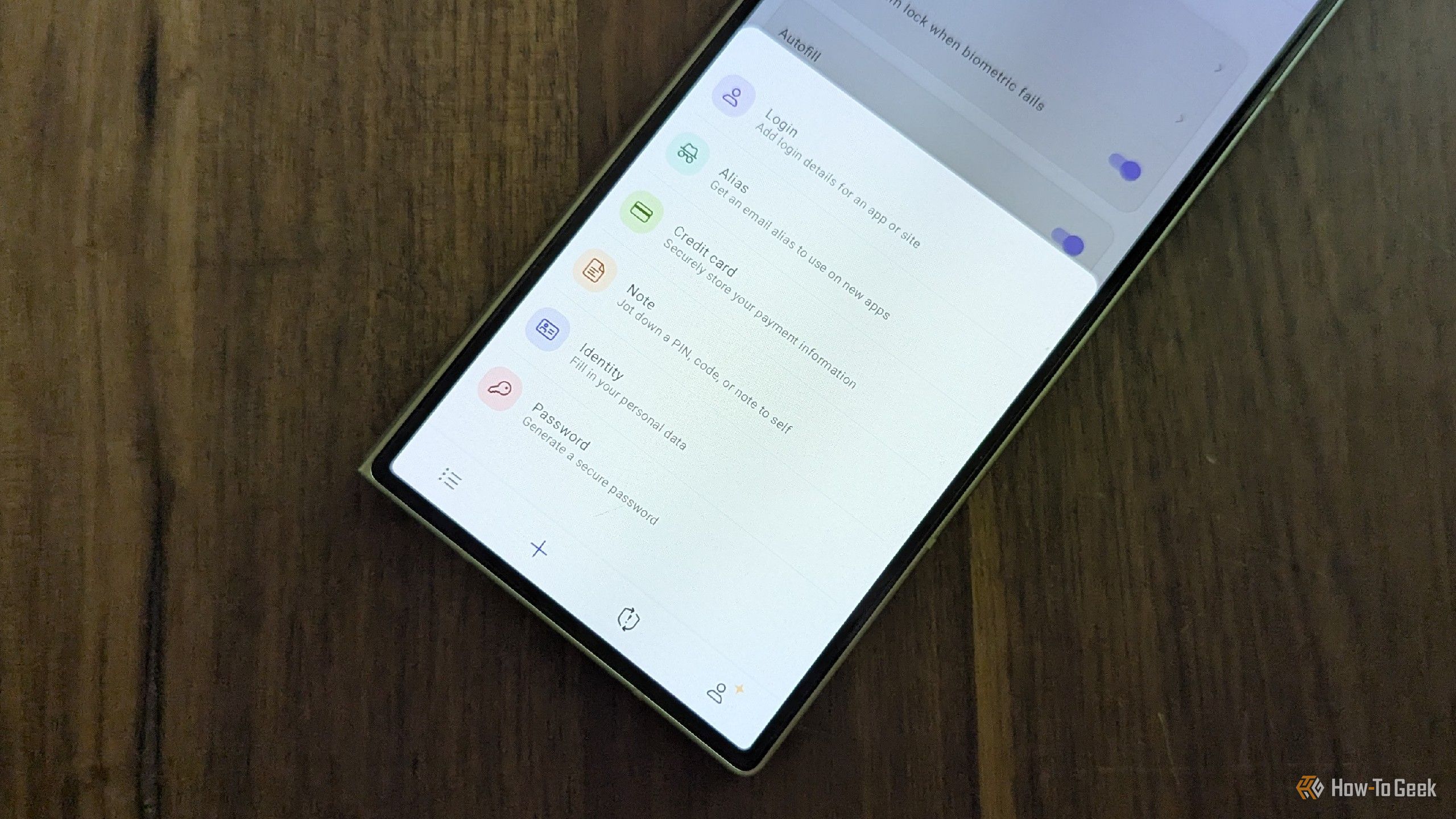Summary
- Email aliases hide your real email address, which can be a big help when attempting to preserve privacy online.
- Proton Pass is my go-to service for creating email aliases.
- Google’s expected Shielded Email feature could potentially mainstream this practice, benefiting those of us who don’t use Google.
I rarely give a website or app my actual email address when I sign up for a new account. I mask my email using an alias instead. Most people have never heard of this possibility, but that’s set to change in a big way as leaks suggest Google may soon bring this feature to the masses.
What Is an Email Alias?
An email alias is an email address you generate for the sole purpose of hiding your actual email address. Any email sent to the alias is forwarded to your real address. If you reply to the email, the recipient receives the response from your alias. They never get to see what your actual email is.
Aliases can be used as temporary burner addresses and for long-term accounts alike. I regularly use them when signing in to a new app for the first time and for online shopping. Email aliases are a big part of the reason I’m comfortable using a smartphone again after years of carrying around a Light Phone 2. They’re also why I’m comfortable purchasing smart home products that typically require creating yet another account with questionable security and marketing practices
First SimpleLogin, Now Proton Pass
I started using email aliases through an open source service called SimpleLogin. With this, I could create an alias for each account I needed to create. I tried to exclusively use open source software back then and primarily interacted with SimpleLogin as a web app on my Linux desktop. I copied the aliases into my KeePass-compatible password manager of choice (Secrets on my computer and KeePassDX on my phones or tablets).
I’m usually not a big form of acquisitions, but when SimpleLogin was purchased by Proton, that worked out for me. I was already a long-time user of Proton Mail and Proton Calendar. Following the acquisition, SimpleLogin remains available as a separate product, but all the functionality has also been baked directly into Proton Pass.
Proton Pass has since become my favorite password manager. I can create aliases, generate new passwords, and store this information all in one place. It’s a one-stop shop for managing my accounts.
I Don’t Use Gmail, But I’m Ready for Google’s Shielded Email
Google has the kind of clout that can make this sort of feature mainstream. That’s why I’m intrigued by leaks showing Google working on a feature called Shielded Email, which you can read about over at Android Authority. It appears the functionality will be baked into Google’s existing Autofill system used for passwords. Here’s how Autofill currently works.
Gmail is the largest email provider. It brings this feature to the masses in a way alternatives like Proton Pass cannot. This will be the easiest way for millions of people using Android phones or Chromebooks to keep their email addresses private.
That’s not to say that everyone will start to use email aliases just because Google makes the feature available. If you’re an iCloud user, you may not know that you can already enjoy this type of privacy thanks to Apple’s “Hide My Email” feature introduced back in 2019.

Related
With So Many Breaches, Apple’s Hide My Email Is More Necessary Than Ever
It can’t protect you completely, but it can limit the damage from a data breach.
Apple is the second-largest email provider, yet even though Hide My Email had been around for over half a decade, most people aren’t aware of email aliases. It’s a similar challenge to that facing end-to-end encryption. Apple introduced end-to-end encryption for iCloud backups years ago by the name of Advanced Data Protection, but it’s not enabled by default. Most people aren’t aware that such encryption exists or what it does.
Adoption Could Help Those of Us Who Don’t Use Google
Over a billion people use Gmail, which is far more than the number of us who consciously choose to seek out a service like Proton Pass. When you set up an Android phone or Chromebook for the first time, you’re prompted to create such an account. Gmail is similar to iCloud in this way, which is pushed on to anyone who purchases an iPhone, iPad, or Mac.
Each time a large company introduces this type of feature, it increases the number of people app developers and website administrators will see signing up with aliases.
I’ve encountered some issues using aliases over the years. Some sites won’t let me create an account with one, presumably as a means of fighting spam or forms of fraud. If legions of non-technical people start signing up using this feature offered by their Google accounts, that incentivizes apps and sites not to block those of us using email aliases legitimately as they try to stop those who aren’t. That said, there’s also the possibility that apps simply don’t block Google domains but continue to limit others. Hopefully that isn’t the case.
If nothing else, Google users registering with funny-looking email addresses would help me feel less self-conscious when I provide a place I know with an email address that admittedly can look pretty sketch. “You’re using an alias. I get it.”
Email aliases have become a vital part of my digital life, as routine as juggling passwords and having a dedicated two-factor authenticator app. They’re a simple solution in my ongoing efforts to use the internet with at least a little anonymity intact. They’re also a means to stay afloat in a sea of spam.

